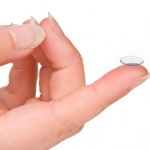How to Take Care of Your Eyes in Spring – Eye Care Tips!

Almost everyone loves the spring season with the warm weather and all the outdoor sports we can now play outside. But even with spring comes seasonal allergies that affect the nose, ears, and eyes. If you wish to know how you can retain healthy eyes and evade spring eye allergies, then stick with us.
Summary
- Wear Sunglasses: Shield eyes from UV rays.
- Wear Hats: Extra protection from allergens.
- Use Protective Lenses: For extreme outdoor activities.
- Get Prescription: Consult an eye doctor for lenses.
- Artificial Eye Drops: Alleviate dryness and itchiness.
- Deep Clean: Remove indoor allergens.
- Manage Allergies: Avoid triggers like pollen.
- Regular Check-ups: Annual eye exams for ongoing health.
1. Wear sunglasses
Most people wear sunglasses during summer, but for some reason, many people leave them at home during spring. This should not be. It is important for your eye health to protect your eyes from the sun’s harmful UV rays as much as possible.
Not only will the sun’s extreme heat damage your eye’s natural lens, but the UV rays from direct sunlight can lead to the development of cataracts, which increases the risk of macular degeneration. Therefore, protect your eyes by wearing protective eyewear, preferably wrap-around sunglasses.
2. Wear hats

Besides sunglasses, you should also make a habit of wearing hats in the spring season. This is because the hat can go further to shield your head from the warmer weather and your eye area from allergens that trigger eye irritation.
3. Protect your eyes during extreme outdoor activities
Sunglasses might be inconvenient if you plan to do something extreme like playing sports, ziplining, or any other adrenaline sport. That is why you should opt for protective contact lenses so as to safeguard your eyes from allergens.
4. Get a prescription for lenses
If you don’t normally wear contact lenses, you might need to visit a doctor to get a prescription. Some eye doctors might prescribe polarized lenses for you, so don’t be alarmed.

Nonetheless, you don’t need to spend a fortune on contacts. Disposable lenses work well for those who don’t need a lens after outdoor activity. Take note, however, that contacts are NOT a replacement for sunglasses.
5. Keep your eyes moist by using artificial eye drops
Artificial eye drops are a highly effective solution to alleviate dry and itchy eyes that often accompany the spring allergy season. It is also great for restoring lost moisture in the eye, which can lead to blurry vision and other eye problems.
6. Consult a doctor for the best drops
Looking for eye drops and artificial tears that tackle more than mere lubrication is better. For individuals battling persistent allergy symptoms, speaking with an eye doctor is advisable.
If you are also experiencing eye irritants due to the change in season, it would be best to communicate this to your doctor so that the best drops that won’t worsen the allergic reactions can be prescribed to you.
7. Deep Clean Places You Spend the Most Time

Ever heard of spring cleaning? It is an important part of spring, not just because we like to clean, but so you can clean off all those dust mites and other allergens that usually come with the season. Dust off your tables and chairs, but don’t forget the places you’d usually skip during routine cleaning. If you can, top off the deep cleaning with an air purifier.
8. Manage seasonal allergies
Mold, pollen release, and blooming flowers can trigger allergy symptoms, so it is best to avoid getting close to these factors as much as you can. Cover your eyes with shades, cover your nose with a face mask, and your ears with hats.

Don’t forget to wash your hands since they are the easiest way of getting germs into your eye. If possible, change your heating, ventilation, and air conditioning filters to reduce the risk of pollen entering your house.
On top of it all, don’t forget to eat well. Cover your food properly and refrain from eating undercooked or cold foods.
9. Visit an Eye Doctor
Do you want to ensure healthy eyes all year round? Then, invest in annual eye exams. Prioritizing annual check-ups for overall health, including your eyes, is important. By scheduling your checkups often, you can track your eye health, become aware of any new developments, and mitigate any issues accordingly and on time.
Conclusion
Spring is a season that brings joy and outdoor activities, but it also comes with its set of challenges, particularly for eye health. Seasonal allergies and increased exposure to UV rays can wreak havoc on your eyes if proper care is not taken. From wearing sunglasses and hats to protect against UV rays and allergens, to consulting an eye doctor for personalized advice and prescriptions, there are multiple ways to ensure your eyes remain healthy. Keeping your living spaces clean, managing seasonal allergies proactively, and maintaining regular eye check-ups are also crucial steps. By adopting these comprehensive eye care tips, you can enjoy the beauty and activities of spring without compromising your eye health.
Learn how to care for our contacts all year!






